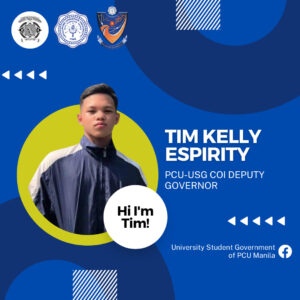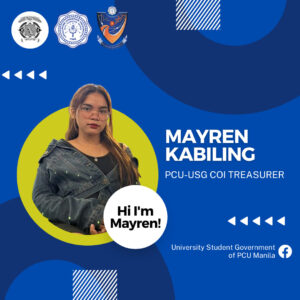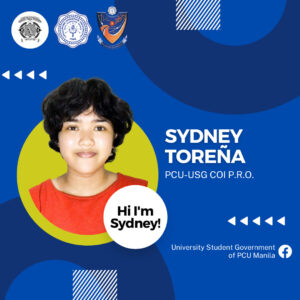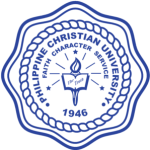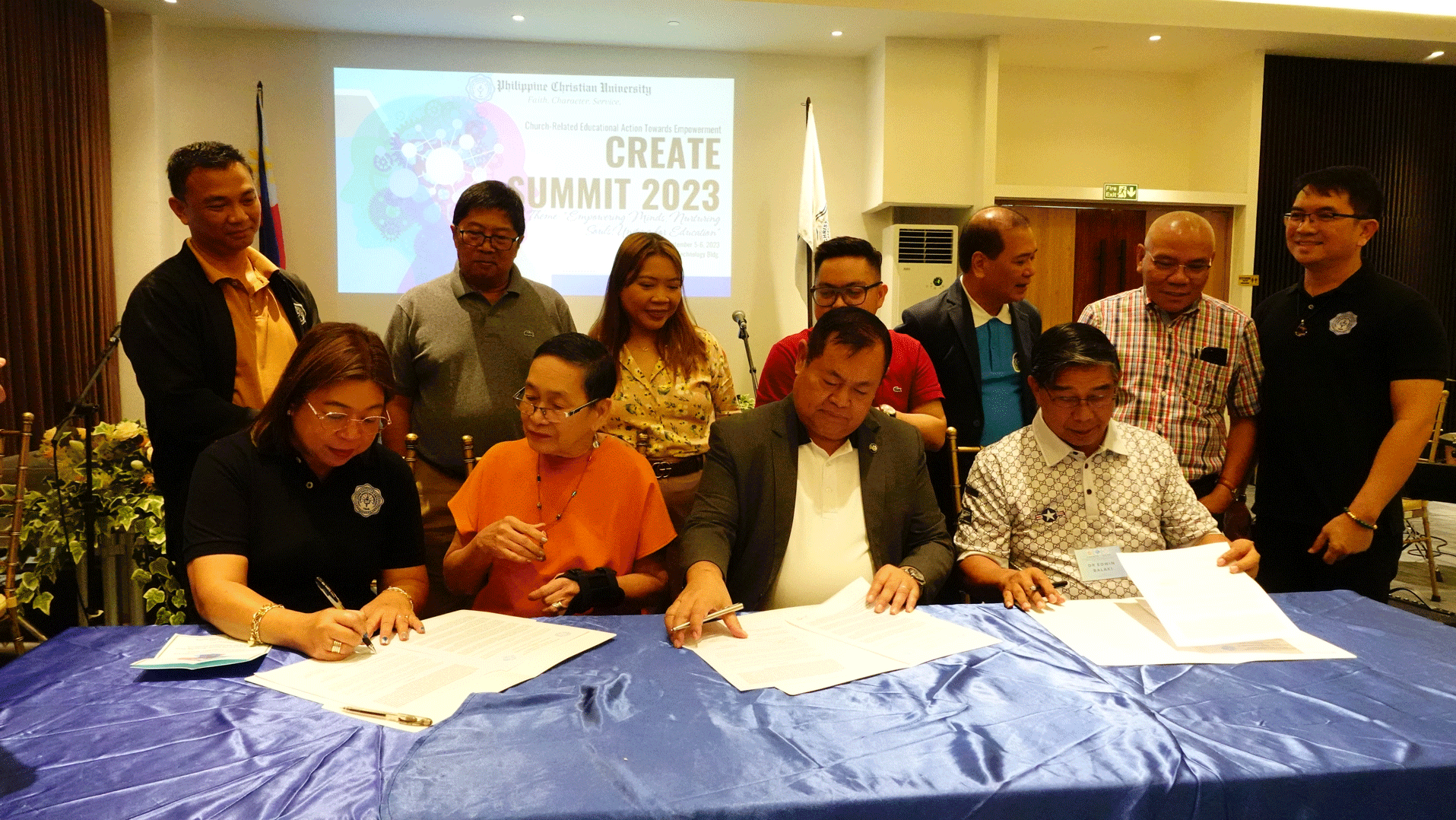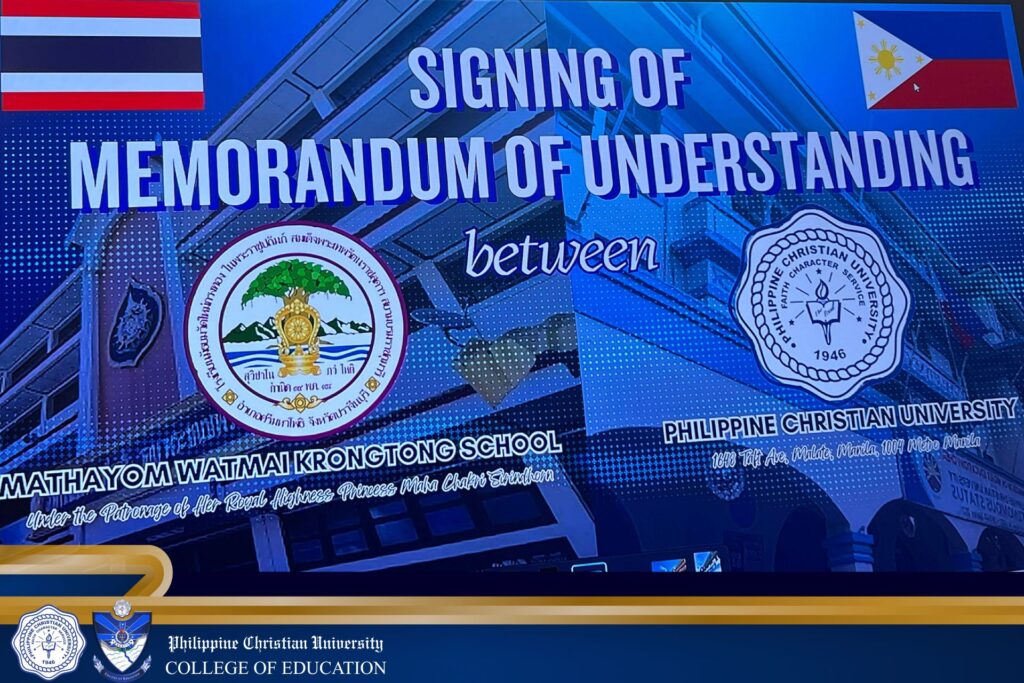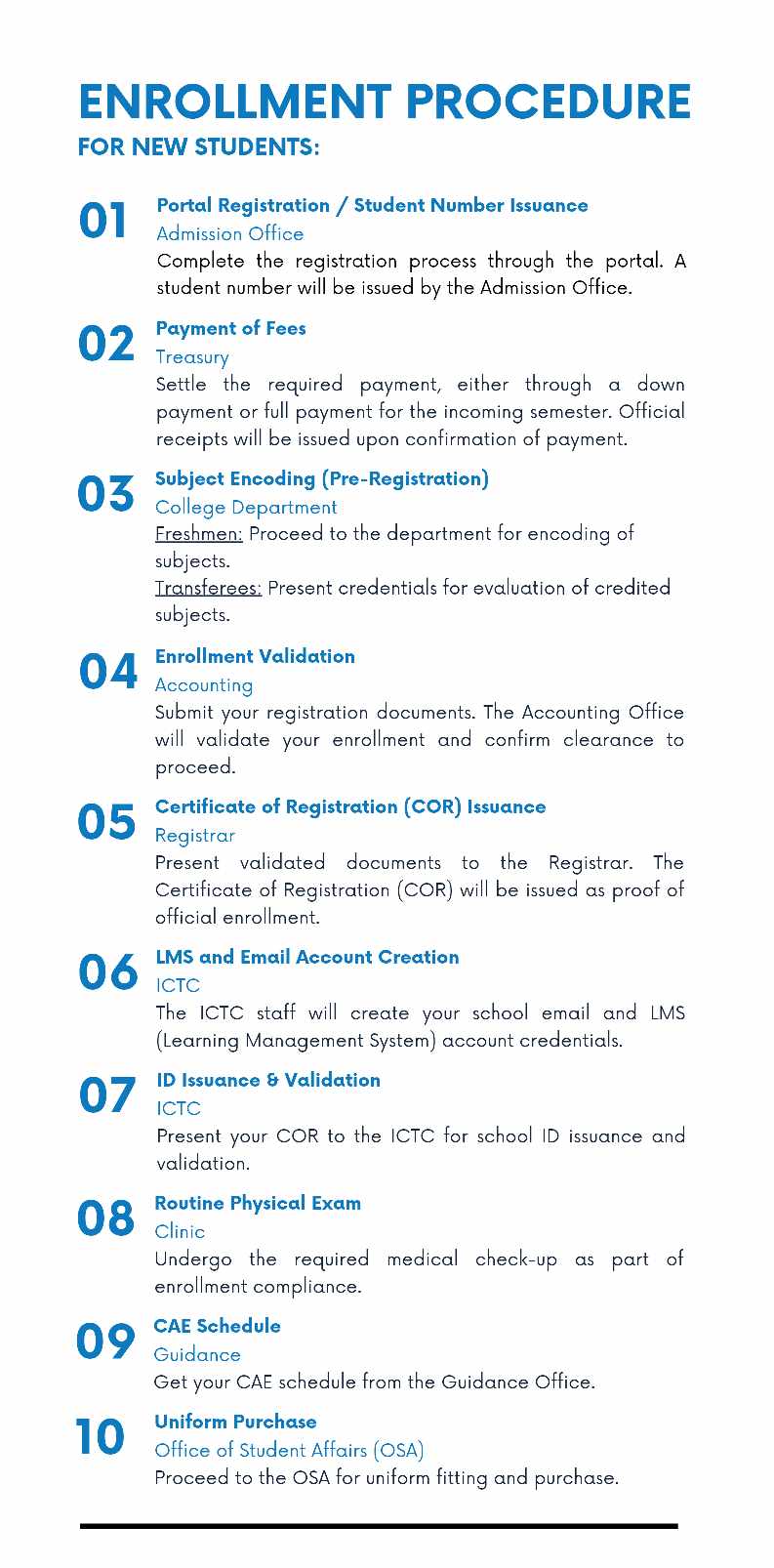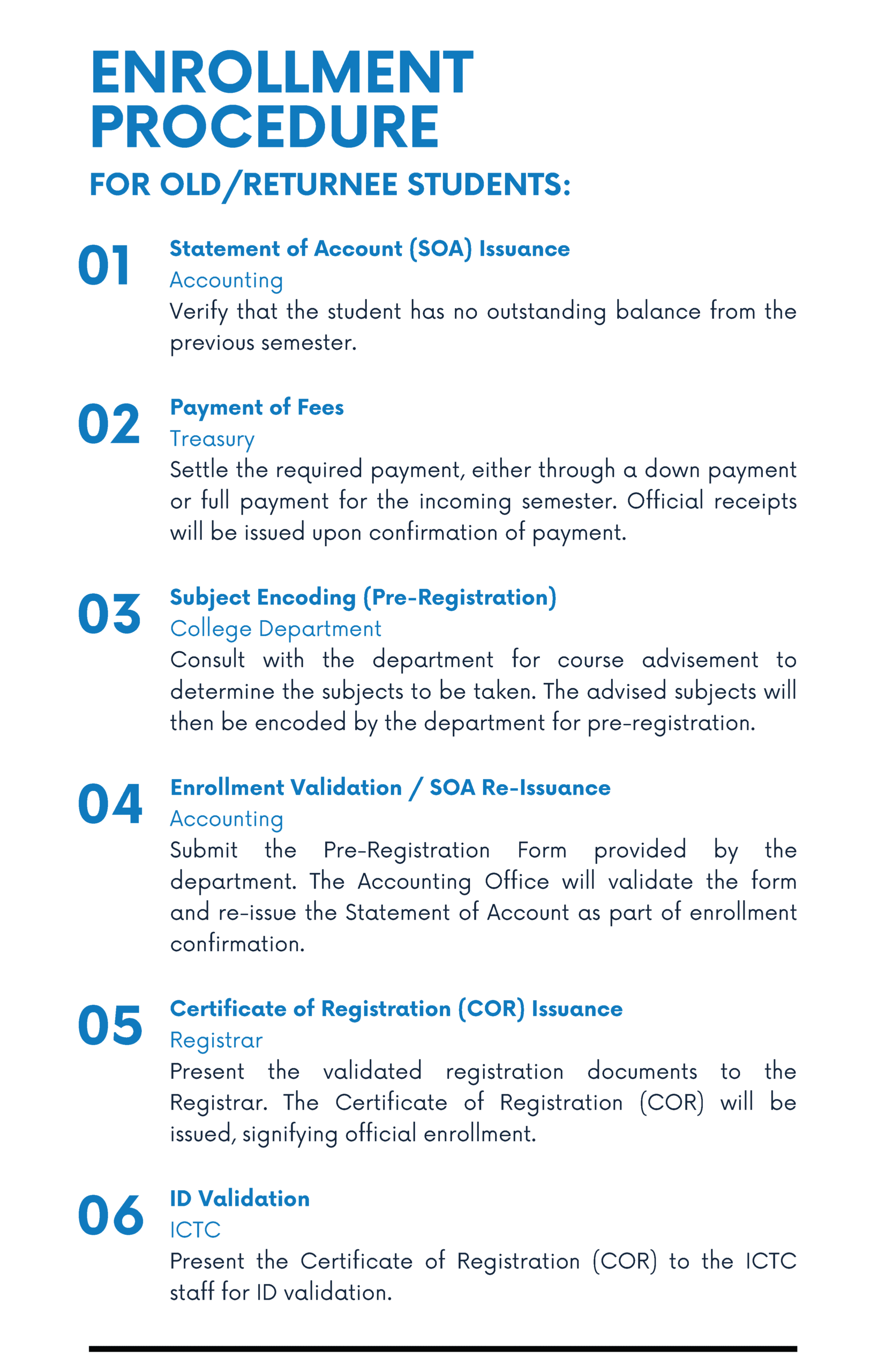College of Informatics
"We don’t just teach IT, we do IT"
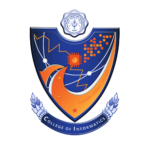
If you are looking for a school that envisions graduates with a passion for excellence and dedication to providing innovative solutions with a strong focus on the human use of computing that helps people interact with technology in the most effective and efficient way possible, we are delighted to welcome you to Philippine Christian University College of Informatics.
Our goal is to enable students with the opportunity to apply theoretical knowledge in the workplace. This, combined with our state-of-the-art facilities, provides our students with limitless opportunities to become proficient in the field of informatics as they gain hands-on experience in our electronics and computer laboratories, as well as industry immersion.
Our academic programs allow you to explore with different specializations, making you more marketable to companies worldwide. As a result, our graduates are always offered jobs before they graduate.
Furthermore, all of our full-time faculty members have a master’s degree, with some holding a doctorate, and our part-time faculty members are industry practitioners, ensuring our students of a high caliber faculty lineup.
Philippine Christian University is a digital, borderless, and multiversity school that offers convenient and flexible learning to both international and local students through online courses. I encourage you to browse our website, which contains detailed information about the school, our academic programs, our faculty, our student body, and our curricula.
We welcome you to Philippine Christian University College of Informatics!
Vision
The College of Informatics will be a center of excellence in
technology, research, and ethical leadership, shaping
future leaders in intelligent systems, digital security, and
data-driven innovation.
Mission
We are committed to excellence in education, research,
and industry collaboration. To achieve this, we:
- Provide a modern and flexible curriculum with hands-
on learning and industry exposure. - Promote research and innovation to solve real-world
challenges. - Build strong industry and community partnerships for
career-ready graduates. - Uphold integrity, leadership, and service guided by
Christian values.
MILESTONES
- The Philippine Association of Colleges and Universities Commissions on Accreditation (PACUCOA) granted Associate status for our BS Computer Engineering and BS Information Technology programs
- A new academic program for BS Multimedia Arts has been launched
- The signing of a Memorandum of Understanding (MOU) with Nexus Technologies, Inc. and PrinceTech Corporation last December 6, 2022.
- Research Collaboration with Students and Faculty Members has been accepted for publication December issue of the Vector: International Journal of Emerging Science, Technology and Management (E-ISSN 2945-4107)
- One research paper by a Faculty Member has been accepted for publication December issue of the Asian Journal of Education and Human Development (ISSN: 2719-1842)
- Our BS Computer Engineering students are now members of the Institute of Computer Engineers of the Philippines Student Edition (ICpeP.SE) – NCR Chapter
- The College of Informatics is now institutional member of the following professional organization:
- Philippine Computer Society (PCS)
- the Philippine Society of Information Technology Educators (PSITE) – NCR Chapter
- the Institute of Computer Engineers of the Philippines
- IEEE Control System Society – Philippine Chapter
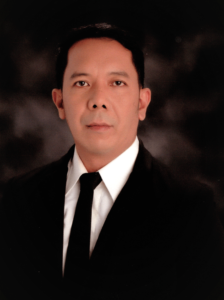
Norman B. Ramos, Ph.D.
Dean
Post Ph.D. in Strategic Management and Leadership
Ph.D. in Business Management Major in Information Technology
Master of Information Technology
Bachelor of Science in Information Technology
Bachelor of Science in Computer Engineering
Dean’s Message
Technology is reshaping the way we live, work, and connect, and at the College of Informatics (COI), we prepare you to lead this transformation. Whether you are a student aspiring to innovate, an industry partner seeking collaboration, or a researcher exploring new frontiers, your role is vital in shaping the future of technology.
At COI, we go beyond traditional learning by integrating technology, business, and social sciences to address real-world challenges. Our approach emphasizes hands-on experience, groundbreaking research, and strong industry partnerships, fostering critical thinkers, ethical leaders, and digital pioneers who drive meaningful change.
Education here is not just about acquiring knowledge—it is about making an impact. We invite you to be part of this journey—contribute your ideas, push boundaries, and help create a smarter, more connected world. Together, we will shape the future with purpose, integrity, and innovation.

Conchita Q. Valeña, Ph.D.
Program Head, Systems Information and Multimedia Programs (COI)

Engr. Bernard A. Mendiola, MSEE-CpE
Program Head BSCS and BSCPE Programs (COI)

John Joshua E. Mendoza, MIT
Program Head for Information Technology (COI)
- BSCpE is a profession that applies engineering principles and methodologies in the analysis, design, implementation and management of hardware, software and the integration of both. The program aims to prepare the students for professional engineering career who will effectively and efficiently meet the scientific, technological and various needs of business, industries and communities in the global economy. Aside from their professional knowledge and skills the graduates of this programs will also possess strong foundation in the physical and basic engineering sciences as well as in human relations to enable them to meet the challenges being brought about by the rapid technological developments. Specifically, the program aims to:
- Prepare students to undertake research and development;
- Conduct systems analysis, perform system design and development and implement project management;
- Provide appropriate technical support;
- Conduct human development in the global market;
- Engage in continuing professional development;
- Engage in technopreneurship and practice professional ethics.
- Program Learning Outcomes (PLO) Based on CMO 87 Series 2017 – Policies, Standards and Guidelines for the Bachelor of Science in Computer Engineering
- Ability to apply the knowledge of mathematics and science to solve complex engineering problems;
- Ability to design and conduct experiments, as well as to analyze and interpret data;
- Ability to design a system, component, or process to meet desired needs within realistic constraints such as economic, environmental, social, political, ethical, health and safety, manufacturability and sustainability, in accordance with standards;
- Ability to function on multidisciplinary teams;
- Ability to identify, formulate, and solve complex engineering problems;
- Program Learning Outcomes (PLO) Based on CMO 87 Series 2017 – Policies, Standards and Guidelines for the Bachelor of Science in Computer Engineering
- Career Opportunities
- Project engineer/manager
- Network systems administrator/manager
- Data communications engineer
- Systems engineer/developer/manager
- Systems analyst/designer
- Technical support engineer/manager
- Quality assurance engineer/manager
- Test engineer
- Technopreneur
- Educator
- Researcher
- Career Opportunities
BSCS program is the study of concepts and theories, algorithmic foundations, implementation and application of information and computing solutions. Our BSCS program prepares students to be IT professionals and researchers imbued with faith, character and service, and prepare them to be proficient in designing and developing computing solutions.
- BSIT programs deals with the study of utilization of computers and computer software to plan, install, customize, operate, manage, administer and maintain information technology infrastructure. Our BSIT program prepares students to be IT professionals imbued with faith, character and service. to be well versed on application installation, operation, development, maintenance and administration, and familiar with hardware installation, operation, and maintenance.
- BMMA
- Nature of the Field of Study
Grounded on design, technology and the visual arts, Multimedia Arts is a field of interdisciplinary study geared towards creative and effective storytelling and expression through the convergence of digital media technologies, forms and practices. The Bachelor of Multimedia Arts aligns itself to the rapid convergence of media technologies and practices by developing conceptual, technical, aesthetic and professional competencies for effective, critical and innovative storytelling across a range or combination of media forms for various purposes. It recognizes that digital media collapse different modes of expression and communication networks that allows for an interface of the local and global, the national and transnational. Thus, the program aims to create competent digital artists and communicators capable of disseminating a national idiom whereby Philippine cultural contexts, identities and formations are articulated in global and transnational discourse. To meet this objective, the program must necessarily be: multimedia in orientation, i.e. focusing on the specific ways that digital media may be harnessed for storytelling and expression in combination with or in relation to other media forms; interdisciplinal, i.e. harnessing perspectives in the humanities, the social sciences and, when applicable, behavioral sciences and business in order to optimize the nuances of multimedia communication in particular contexts as a precondition for its effective application; and grounded in theory and practice, i.e. recognizing that the effective practice of multimedia arts is greatly based on insights gleaned from both scholarship and application in the creative industries. These qualities make the Bachelor of Multimedia Arts a uniquely relevant discipline in Philippine tertiary education. - Program Goals
The Bachelor of Multimedia Arts program is designed to respond to the requirement in the discipline for graduates to be familiar with a wide range of media forms; and to provide the theoretical foundations and practical experience to develop skills in creative storytelling and expression for various purposes and contexts. The goal of the program is to develop within students the knowledge and skills that will enable them to communicate effectively, critically and creatively across a range of new media technologies and forms, and to develop multimedia projects with these qualities, for various purposes. To develop his or her knowledge and skills, students of the Multimedia Arts program will undergo a curriculum of courses marked by the following core competencies:- Conceptual, i.e. the ability to demonstrate knowledge and understanding of multimedia theories, genres and various approaches in applications of multimedia.
- Technical, i.e. the ability to demonstrate technical proficiency in the use of appropriate hardware and software required in the production of multimedia projects.
- Aesthetic, i.e. the ability to exhibit creativity and innovative thinking in the design and production of multimedia projects.
- Professional, i.e. the ability to engage professionally and ethically in multimedia practice in the creative industries and other community contexts.
- Nature of the Field of Study
- Specific Professions/careers/occupations for graduates
Graduates of this program may find employment as creative directors; art directors; video and audio production professionals; digital artists;
- animators
- multimedia designers for various applications such as
- web,
- interactive,
- mobile,
- motion- and time creative industries,
- freelance practice,
- entrepreneurial initiatives,
- and other allied or related professions.
- Specific Professions/careers/occupations for graduates
- Allied Programs
The focused aim of the Bachelor of Multimedia Arts program is to galvanize the creative and innovative thinking involved in the design and production of projects across multiple media forms. The foundational disciplines of the program are design, the visual arts, computer technology, and creative expression or communication. Therefore, for purposes of determining the qualifications of faculty members, program administrators, and students cross-reenrolling from other academic departments and fields, the following are considered allied programs:- Arts and Design (Fine Arts, Architecture, Industrial Design)
- Media and Communication (Film, Media Studies, Communication Arts, Journalism, Advertising and Integrated Marketing Communications, Entertainment Management)
- Information Technology (Information Design, Information Technology, Digital Animation)
- Performing Arts (Music, Theater Arts) Sound and Communications Engineering
- Literature and Creative Writing
- Behavioral and Social Sciences (Psychology, Behavioral Economics)
- Allied Programs
- BSCpE is a profession that applies engineering principles and methodologies in the analysis, design, implementation and management of hardware, software and the integration of both. The program aims to prepare the students for professional engineering career who will effectively and efficiently meet the scientific, technological and various needs of business, industries and communities in the global economy. Aside from their professional knowledge and skills the graduates of this programs will also possess strong foundation in the physical and basic engineering sciences as well as in human relations to enable them to meet the challenges being brought about by the rapid technological developments. Specifically, the program aims to:
- Prepare students to undertake research and development;
- Conduct systems analysis, perform system design and development and implement project management;
- Provide appropriate technical support;
- Conduct human development in the global market;
- Engage in continuing professional development;
- Engage in technopreneurship and practice professional ethics.
- Program Learning Outcomes (PLO) Based on CMO 87 Series 2017 – Policies, Standards and Guidelines for the Bachelor of Science in Computer Engineering
- Ability to apply the knowledge of mathematics and science to solve complex engineering problems;
- Ability to design and conduct experiments, as well as to analyze and interpret data;
- Ability to design a system, component, or process to meet desired needs within realistic constraints such as economic, environmental, social, political, ethical, health and safety, manufacturability and sustainability, in accordance with standards;
- Ability to function on multidisciplinary teams;
- Ability to identify, formulate, and solve complex engineering problems;
- Program Learning Outcomes (PLO) Based on CMO 87 Series 2017 – Policies, Standards and Guidelines for the Bachelor of Science in Computer Engineering
- Career Opportunities
- Project engineer/manager
- Network systems administrator/manager
- Data communications engineer
- Systems engineer/developer/manager
- Systems analyst/designer
- Technical support engineer/manager
- Quality assurance engineer/manager
- Test engineer
- Technopreneur
- Educator
- Researcher
- Career Opportunities
BSCS program is the study of concepts and theories, algorithmic foundations, implementation and application of information and computing solutions. Our BSCS program prepares students to be IT professionals and researchers imbued with faith, character and service, and prepare them to be proficient in designing and developing computing solutions.
- BSIS focuses the study of design and implementation of solutions that integrate information technology with business processes. Our BSIS program prepares students to be IT professionals imbued with faith, character and service and to be expert on design and implementation of information systems for business processes.
- BSIT programs deals with the study of utilization of computers and computer software to plan, install, customize, operate, manage, administer and maintain information technology infrastructure. Our BSIT program prepares students to be IT professionals imbued with faith, character and service. to be well versed on application installation, operation, development, maintenance and administration, and familiar with hardware installation, operation, and maintenance.
- BSEMC with specialization in Digital Animation
- Nature of the Field of Study
Entertainment and Multimedia Computing is the study and use of concepts, principles, and techniques of computing in the design and development of multimedia products and solutions. It includes various applications such as in science, entertainment, education, simulations and advertising.
The program enables the students to be knowledgeable of the whole pipeline of Game Development and Digital Animation projects. The students will acquire the independence and creative competencies to articulate project design and requirements of new projects, not necessarily based on standard templates. Specialization
Digital Animation. It is the study and application of fundamental and advanced theories and advanced techniques in 2D and 3D animation, use and development for advancement of animation technologies, and production of commercially acceptable content and viable solutions for different platforms such as broadcast, web and mobile cast.
Objective:
To prepare students to be digital animation professionals who are equipped with both creative and technical knowledge, skills, and values in conceptualizing, designing and producing animation products and solutions, and in managing such projects over different technology platforms.
These are specific professions/careers/ occupations or trades that BS EMC graduates may pursue. After satisfactorily completing all the requirements leading to BS EMC degree, students may qualify for, but not limited to, the following entry level positions:
BS EMC Specialized in Digital Animation
- Creative Programmer
- Technical Animator
- Creative Content Developer
- Ad Builders
- Technical Director for Modelling / Rigging / Lighting
- Animation Quality Assurance Specialist
- Technical Director for Game Art
- Digital 2D or 3D Animation Content Producer
- Digital 2D or 3D Production Designer
- Associate Business Development Specialist for Entertainment and Multimedia Industries
- Nature of the Field of Study
- BSEMC with specialization in Game Development
- Nature of the Field of Study
Entertainment and Multimedia Computing is the study and use of concepts, principles, and techniques of computing in the design and development of multimedia products and solutions. It includes various applications such as in science, entertainment, education, simulations and advertising.
The program enables the students to be knowledgeable of the whole pipeline of Game Development and Digital Animation projects. The students will acquire the independence and creative competencies to articulate project design and requirements of new projects, not necessarily based on standard templates. Specialization
Game Development. It is the study and application of fundamental and advanced theories in game design, scientific simulations, use and development of gaming technology and tools, and production of commercially acceptable digital games and viable solutions for use in entertainment and scientific applications.
Objective:
To prepare students to be game development professionals with specialized knowledge, competencies and values in designing, developing, and producing digital games and / or tools, and in managing game development projects for various applications.
These are specific professions/careers/ occupations or trades that BS EMC graduates may pursue. After satisfactorily completing all the requirements leading to BS EMC degree, students may qualify for, but not limited to, the following entry level positions:
BS EMC Specialized in Game Development
- Lead Game Programmer/Developer / Tools Developer
- Associate Technical Director / Game Designer
- Associate Game Quality Assurance Specialist
- Senior Interactive Software Developer
- Associate Game Producer
- Senior Game Sound Engineer
- Graphics Programmer
- Associate Business Development Specialist for Entertainment and Multimedia Industries
- Nature of the Field of Study
- BMMA
- Nature of the Field of Study
Grounded on design, technology and the visual arts, Multimedia Arts is a field of interdisciplinary study geared towards creative and effective storytelling and expression through the convergence of digital media technologies, forms and practices. The Bachelor of Multimedia Arts aligns itself to the rapid convergence of media technologies and practices by developing conceptual, technical, aesthetic and professional competencies for effective, critical and innovative storytelling across a range or combination of media forms for various purposes. It recognizes that digital media collapse different modes of expression and communication networks that allows for an interface of the local and global, the national and transnational. Thus, the program aims to create competent digital artists and communicators capable of disseminating a national idiom whereby Philippine cultural contexts, identities and formations are articulated in global and transnational discourse. To meet this objective, the program must necessarily be: multimedia in orientation, i.e. focusing on the specific ways that digital media may be harnessed for storytelling and expression in combination with or in relation to other media forms; interdisciplinal, i.e. harnessing perspectives in the humanities, the social sciences and, when applicable, behavioral sciences and business in order to optimize the nuances of multimedia communication in particular contexts as a precondition for its effective application; and grounded in theory and practice, i.e. recognizing that the effective practice of multimedia arts is greatly based on insights gleaned from both scholarship and application in the creative industries. These qualities make the Bachelor of Multimedia Arts a uniquely relevant discipline in Philippine tertiary education. - Program Goals
The Bachelor of Multimedia Arts program is designed to respond to the requirement in the discipline for graduates to be familiar with a wide range of media forms; and to provide the theoretical foundations and practical experience to develop skills in creative storytelling and expression for various purposes and contexts. The goal of the program is to develop within students the knowledge and skills that will enable them to communicate effectively, critically and creatively across a range of new media technologies and forms, and to develop multimedia projects with these qualities, for various purposes. To develop his or her knowledge and skills, students of the Multimedia Arts program will undergo a curriculum of courses marked by the following core competencies:- Conceptual, i.e. the ability to demonstrate knowledge and understanding of multimedia theories, genres and various approaches in applications of multimedia.
- Technical, i.e. the ability to demonstrate technical proficiency in the use of appropriate hardware and software required in the production of multimedia projects.
- Aesthetic, i.e. the ability to exhibit creativity and innovative thinking in the design and production of multimedia projects.
- Professional, i.e. the ability to engage professionally and ethically in multimedia practice in the creative industries and other community contexts.
- Nature of the Field of Study
- Specific Professions/careers/occupations for graduates
Graduates of this program may find employment as creative directors; art directors; video and audio production professionals; digital artists;
- animators
- multimedia designers for various applications such as
- web,
- interactive,
- mobile,
- motion- and time creative industries,
- freelance practice,
- entrepreneurial initiatives,
- and other allied or related professions.
- Specific Professions/careers/occupations for graduates
- Allied Programs
The focused aim of the Bachelor of Multimedia Arts program is to galvanize the creative and innovative thinking involved in the design and production of projects across multiple media forms. The foundational disciplines of the program are design, the visual arts, computer technology, and creative expression or communication. Therefore, for purposes of determining the qualifications of faculty members, program administrators, and students cross-reenrolling from other academic departments and fields, the following are considered allied programs:- Arts and Design (Fine Arts, Architecture, Industrial Design)
- Media and Communication (Film, Media Studies, Communication Arts, Journalism, Advertising and Integrated Marketing Communications, Entertainment Management)
- Information Technology (Information Design, Information Technology, Digital Animation)
- Performing Arts (Music, Theater Arts) Sound and Communications Engineering
- Literature and Creative Writing
- Behavioral and Social Sciences (Psychology, Behavioral Economics)
- Allied Programs
 Hanna Christine D. Orbina
Hanna Christine D. Orbina
College Secretary
Contact Us:
ceit@pcu.edu.ph
(+632) 8330-1664 | (+639)66-4206091
Courses Offered
BSCS program is the study of concepts and theories, algorithmic foundations, implementation and application of information and computing solutions. Our BSCS program prepares students to be IT professionals and researchers imbued with faith, character and service, and prepare them to be proficient in designing and developing computing solutions.
- BSIT programs deals with the study of utilization of computers and computer software to plan, install, customize, operate, manage, administer and maintain information technology infrastructure. Our BSIT program prepares students to be IT professionals imbued with faith, character and service. to be well versed on application installation, operation, development, maintenance and administration, and familiar with hardware installation, operation, and maintenance.
- BSCpE is a profession that applies engineering principles and methodologies in the analysis, design, implementation and management of hardware, software and the integration of both. The program aims to prepare the students for professional engineering career who will effectively and efficiently meet the scientific, technological and various needs of business, industries and communities in the global economy. Aside from their professional knowledge and skills the graduates of this programs will also possess strong foundation in the physical and basic engineering sciences as well as in human relations to enable them to meet the challenges being brought about by the rapid technological developments. Specifically, the program aims to:
- Prepare students to undertake research and development;
- Conduct systems analysis, perform system design and development and implement project management;
- Provide appropriate technical support;
- Conduct human development in the global market;
- Engage in continuing professional development;
- Engage in technopreneurship and practice professional ethics.
- Program Learning Outcomes (PLO) Based on CMO 87 Series 2017 – Policies, Standards and Guidelines for the Bachelor of Science in Computer Engineering
- Ability to apply the knowledge of mathematics and science to solve complex engineering problems;
- Ability to design and conduct experiments, as well as to analyze and interpret data;
- Ability to design a system, component, or process to meet desired needs within realistic constraints such as economic, environmental, social, political, ethical, health and safety, manufacturability and sustainability, in accordance with standards;
- Ability to function on multidisciplinary teams;
- Ability to identify, formulate, and solve complex engineering problems;
- Program Learning Outcomes (PLO) Based on CMO 87 Series 2017 – Policies, Standards and Guidelines for the Bachelor of Science in Computer Engineering
- Career Opportunities
- Project engineer/manager
- Network systems administrator/manager
- Data communications engineer
- Systems engineer/developer/manager
- Systems analyst/designer
- Technical support engineer/manager
- Quality assurance engineer/manager
- Test engineer
- Technopreneur
- Educator
- Researcher
- Career Opportunities
- BMMA
- Nature of the Field of Study
Grounded on design, technology and the visual arts, Multimedia Arts is a field of interdisciplinary study geared towards creative and effective storytelling and expression through the convergence of digital media technologies, forms and practices. The Bachelor of Multimedia Arts aligns itself to the rapid convergence of media technologies and practices by developing conceptual, technical, aesthetic and professional competencies for effective, critical and innovative storytelling across a range or combination of media forms for various purposes. It recognizes that digital media collapse different modes of expression and communication networks that allows for an interface of the local and global, the national and transnational. Thus, the program aims to create competent digital artists and communicators capable of disseminating a national idiom whereby Philippine cultural contexts, identities and formations are articulated in global and transnational discourse. To meet this objective, the program must necessarily be: multimedia in orientation, i.e. focusing on the specific ways that digital media may be harnessed for storytelling and expression in combination with or in relation to other media forms; interdisciplinal, i.e. harnessing perspectives in the humanities, the social sciences and, when applicable, behavioral sciences and business in order to optimize the nuances of multimedia communication in particular contexts as a precondition for its effective application; and grounded in theory and practice, i.e. recognizing that the effective practice of multimedia arts is greatly based on insights gleaned from both scholarship and application in the creative industries. These qualities make the Bachelor of Multimedia Arts a uniquely relevant discipline in Philippine tertiary education. - Program Goals
The Bachelor of Multimedia Arts program is designed to respond to the requirement in the discipline for graduates to be familiar with a wide range of media forms; and to provide the theoretical foundations and practical experience to develop skills in creative storytelling and expression for various purposes and contexts. The goal of the program is to develop within students the knowledge and skills that will enable them to communicate effectively, critically and creatively across a range of new media technologies and forms, and to develop multimedia projects with these qualities, for various purposes. To develop his or her knowledge and skills, students of the Multimedia Arts program will undergo a curriculum of courses marked by the following core competencies:- Conceptual, i.e. the ability to demonstrate knowledge and understanding of multimedia theories, genres and various approaches in applications of multimedia.
- Technical, i.e. the ability to demonstrate technical proficiency in the use of appropriate hardware and software required in the production of multimedia projects.
- Aesthetic, i.e. the ability to exhibit creativity and innovative thinking in the design and production of multimedia projects.
- Professional, i.e. the ability to engage professionally and ethically in multimedia practice in the creative industries and other community contexts.
- Nature of the Field of Study
- Specific Professions/careers/occupations for graduates
Graduates of this program may find employment as creative directors; art directors; video and audio production professionals; digital artists;
- animators
- multimedia designers for various applications such as
- web,
- interactive,
- mobile,
- motion- and time creative industries,
- freelance practice,
- entrepreneurial initiatives,
- and other allied or related professions.
- Specific Professions/careers/occupations for graduates
- Allied Programs
The focused aim of the Bachelor of Multimedia Arts program is to galvanize the creative and innovative thinking involved in the design and production of projects across multiple media forms. The foundational disciplines of the program are design, the visual arts, computer technology, and creative expression or communication. Therefore, for purposes of determining the qualifications of faculty members, program administrators, and students cross-reenrolling from other academic departments and fields, the following are considered allied programs:- Arts and Design (Fine Arts, Architecture, Industrial Design)
- Media and Communication (Film, Media Studies, Communication Arts, Journalism, Advertising and Integrated Marketing Communications, Entertainment Management)
- Information Technology (Information Design, Information Technology, Digital Animation)
- Performing Arts (Music, Theater Arts) Sound and Communications Engineering
- Literature and Creative Writing
- Behavioral and Social Sciences (Psychology, Behavioral Economics)
- Allied Programs
Curricular Strategy
Curricular Strategy here
Discipline | Sub-Discipline | Specialization | Sub-Specialization | Research Title | Institution Researched | Location | Completion Date |
| ||||||
Country | Province | Town | Village | |||||||||||
Information Technology | Mobile Application Development | Emergency Response | Mobile Application Development for Emergency Response | Developing Mobilization Aid and Safety Application (Masa): A Mobile Application for Emergency Delays and Incident Reporting in Manila |
| Philippines | Manila City |
|
| July 2024 |
| |||
Information Technology | Web Application Development | Logistics Monitoring | Online Fleet Trucking Monitoring System | Enhancing Fleet Management Efficiency: Developing an Integrated E-Logistics Monitoring System for Sustainable Operations at Masbate Trucking |
| Philippines |
|
|
| December 2023 | ||||
Information Technology | Educational Data Mining | Data Science | Predictive Learning Analytics | Learning Analytics Towards Conducive Learning Environment
P-ISSN: 2719-1842 E-ISSN: 2945-4107 | Foster a Conducive Learning Environment |
|
|
|
| |||||
Computer Engineering | Sensory Augmentation | Sensory Augmentation and Enhancement | IOT | Sensory Earphone: An Assistive Device for Persons with Visual Disability
P-ISSN: 0119-3058 E- ISSN: 2945-4093 | Assistive Technology |
|
|
|
| Dec 2022 |
| |||
Information Technology |
| Data Science |
| Bridging the Gap: A Quantitative Analysis of The Impact of Course Outcomes and Faculty Evaluations on Licensure Core Competency for Bachelor of Science In Accountancy
ISSN 2945-4484 | Foster a Conducive Learning Environment |
|
|
|
| |||||
| Leadership and Management |
|
| Bridging IT and Business Strategy: The Integrated Strategic Alignment and Optimization Framework (ISAOF) |
|
|
|
|
|
|
| |||
Information | Web Application Development | Gym Management |
| GYMSYM: Technology – Driven Gym Management System for Sustainable Community Sports performance in the Philippines |
| Philippines |
|
|
| |||||
Business Analytics | Data Analytics | Customer Profiling | Direct-to-Consumer Retail Strategies |
|
|
|
|
|
| April 2024 |
| |||
Information Technology | Data Science | Performance Prediction | ATM Performance Analysis |
|
|
|
|
|
| April 2024 |
| |||
Information Technology | Web Application Development | Booking and Inventory | Salon Management | Integrating Online Booking with Inventory Management for Glamour Nails and Beauty |
|
|
|
|
| April 2024 |
| |||
Information Technology | Data Visualization | Enrollment Analysis | Academic Dynamics | Visualizing Enrollment Dynamics at Philippine Electronics and Communication Institute of Technology Through PowerBI |
|
|
|
|
| April 2024 |
| |||
Information Technology | Inventory Management | Healthcare | Medical Inventory | Inventory Management System for Ilocos Training and Regional Medical Center with Daily Monitoring Analysis |
|
|
|
|
| April 2024 |
| |||
Information Technology | Data Visualization | Academic Support | Academic Advising | A Data-driven Strategies using Power BI to Analyze the Role of Academic Advising and Support Services of BSIT Students |
|
|
|
|
| April 2024 |
| |||
Information Technology | Predictive Analytics | Licensure Exam Prep | Educational Data Mining | Predictive Modelling for Mock Licensure Board Exam for BSED Filipino Students of EECP Using Naïve Bayes Classification Algorithm |
|
|
|
|
| April 2024 |
| |||
Information Technology | Data Analytics | Credit Information | Data Processing and Loading Performance | Maximizing Efficiency: A Data Analysis on the Credit Information System’s Data Processing and Loading Performance |
|
|
|
|
| April 2024 |
| |||
Information Technology |
| Budget Allocation | Reinforcement Learning | Exploring the Effectiveness of Reinforcement Learning in Budget Allocation Strategies for DENR PENRO |
|
|
|
|
| April 2024 |
| |||
Information Technology | Web Application Development | Appointment Management | Online Information Systems | Data-Driven Optimization for Facial Executive Care Appointment and Services: An Online Information System |
| Philippines |
|
|
| April 2024 |
| |||
Information Technology | Web Application Development | Appointment Management | Online Information Systems | Data-Driven Optimization for Facial Executive Care Appointment and Services: An Online Information System |
| Philippines |
|
|
| April 2024 |
| |||
Information Technology | Educational Technology | Laboratory Efficiency | Computer Laboratory Management | Method of Improving the Efficiency of the Computer Laboratory of the Philippine Electronics and Communication Institute of Technology | Philippine Electronics and Communication Institute of Technology | Philippines |
|
|
| April 2024 |
| |||
Business Analytics | Data Visualization | Loan Portfolio Analysis | Financial Reporting | Analyzing Loan Portfolio Trends: Active and Closed Contracts Reported by Different Financial Institutions in a Credit Registry with Power BI |
| Philippines |
|
|
| April 2024 |
| |||
Game Development | 2D Game Design | Platformer Game | Educational Game | The Development of 2D Covitron Platformer Game |
| Philippines |
|
|
| December 2021 |
| |||
Information Technology | Web Application Development | Business Website | Service Industry | A Business Website for “CLAD Glass and Aluminium Services” |
| Philippines |
|
|
| June 2022 |
| |||
Information Technology | Web Application Development | Reservation Systems | Hotel Management | Hotel Reservation System for 24/7 Balikbayan Fun Resort |
| Philippines |
|
|
| June 2022 |
| |||
Information Technology | Human Resource Information Systems | HR Management | Personnel Records | PCU Human Resource Information Management | Philippine Christian University | Philippines |
|
|
| January 2021 |
| |||
Game Development | 3D Game Design | Survival Game | Disaster Preparedness | Development of 3D Survival Game Using Unity: “Disaster Preparedness 3D Game” |
| Philippines |
|
|
| June 2022 |
| |||
Information Technology | Web Application Development | Ordering Systems | Food Service | Web-Based Ordering System for Sips & Eats by Sweetli Bakes |
|
|
|
|
| June 2022 |
| |||
Information Technology | Mobile Application Development | Health & Fitness | Personalized Fitness Solutions | Tailored Health and Fitness App |
| Philippines |
|
|
| 2024 |
| |||
Game Development | Game Design | Tower Defense Game | Environmental Awareness | Yggdrasil: An Environmental Protection Tower Defense Game |
| Philippines |
|
|
| 2024 |
| |||
Information Technology | Web Development | Food ordering system | Food Service | ENHANCING RESTAURANT OPERATION WITH AN AUTOMATED ORDERING SYSTEM WITH EMAIL NOTIFICATION PLATFORM FOR BYAHENG BUSOG RESTAURANT |
| Philippines |
|
|
| 2024 |
| |||
Information Technology | Web Development | Reservation System | Resort Management | ForReserve_Forest Hillside Pools Resort Reservation with Virtual Tour and Visual Analytics | Philippine Christian University | Philippines |
|
|
| 2024 |
| |||
Information Technology | Web Development | Reservation System | Sports Reservation Management | SureShot SportsVille: A Comprehensive Event and Sports Tournaments Web-Based Application with Merchandise Products and Services Platform
|
| Philippines | Manila |
|
| July 2024
|
| |||
Community Extension Project Name | Beneficiaries | Date (Inclusive) | Evaluation | Recommendation | Galleries |
|
|
|
|
|
|
|
|
|
|
|
|
|
|
|
|
|
|
Company Name | Company Logo | Description |
Oracle International |  | This company operates on ………… |
|
|
|
Nexus Technologies, Inc. |  | Nexus is a prominent force in the information technology industry in the Philippines, having carved a niche as the systems integrator and corporate IT reseller of choice of a number of the country’s top corporations |
PrinceTech |  | Princetech focuses on software development for schools particularly for Region 3 state universities and colleges. Several years later, the company complied with the requirements of private schools. |
Melham Construction Corporation |  | Melham Construction Corporation (MCC) is a Philippine Contractors Accreditation Board (PCAB) registered company that specializes in construction techniques. It was acknowledged and registered by the Philippine government last 2020 in February. |

